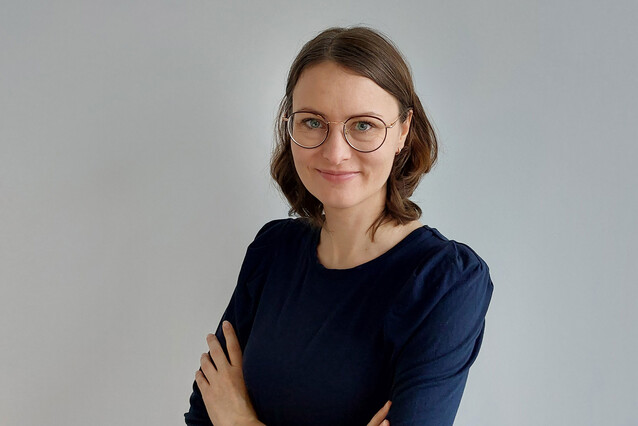Karl Landsteiner Award for Louisa Hill
Louisa Hill, former PhD student in the lab of Meinrad Busslinger, received the Karl Landsteiner Award of the Austrian Society of Allergology and Immunology in a ceremony held in Linz today. Her research on DNA recombination principles in early B cell development propelled our understanding of how a diverse antibody repertoire arises.
In the course of a human life, the immune system encounters a staggering number of pathogens, from viruses to bacteria, protists, and other parasites. To fight off potential infections, antibodies exhibit remarkable diversity, estimated at up to 1011 variants, which exceeds the number of our 20,000 genes by a long shot.
During her doctoral studies in the Vienna BioCenter PhD Program, Louisa Hill set out to understand how such high variability can be generated in early B cells. The highly variable target-binding site of an antibody molecule is formed by a heavy chain and a light chain, which together build the binding surface for disease-causing particles. Antibody heavy and light chains are assembled from individual gene segments by DNA folding and recombination, which takes place at different developmental stages during early B cell development.
In a study published earlier this year in the journal Nature Communications, Hill and colleagues in the lab of Meinrad Busslinger show that two different DNA folding principles are required for the heavy and light chains to be generated. While the recombination of heavy chain genes relies on large DNA loops, the light chain locus forms multiple small loops to recombine. This dual folding mechanism ensures B cells produce antibodies specific to a single target.
This discovery’s broad scientific implications are now recognised by the Karl Landsteiner Award of the Austrian Society of Allergology and Immunology, awarded to first author Louisa Hill – the second time the distinction goes to a scientist in the Busslinger Lab.
Previously, Louisa Hill’s research was already recognised by the Fritz Melchers Prize and the Rabitsch Award. After defending her doctoral thesis at the IMP in 2021, Hill took on a postdoc position in the lab of Andrea Musacchio at the Max Planck Institute of Molecular Physiology in Dortmund, Germany.
Further reading
Two different DNA folding principles generate antibody diversity
Prestigious prize of the Austrian Society of Allergology and Immunology for Louisa Hill
Louisa Hill wins the Rabitsch Award 2021
About the Vienna BioCenter PhD Program
Much of the work underlying this award was done by Louisa Hill while she was part of the Vienna BioCenter PhD Program. Are you interested in a world-class career in molecular biology? Find out more: https://training.vbc.ac.at/phd-program/
